|
Dr Tom Cromarty Editor Interests: Paediatric Emergency Medicine, Medical Engagement and Leadership, Simulation, Quality Improvement, Research Twitter: @Tomcromarty |
Welsh Research and Education Network
WREN BlogHot topics in research and medical education, in Wales and beyond
Dr Celyn Kenny Editor Interests: Neonates, Neurodevelopment, Sepsis, Media and Broadcasting Twitter: @Celynkenny |
|
Guest Blog from Dr Katie Greenwood ST8 Hello! Thank you WREN team for giving me the opportunity to share my experiences over the past few years with you. Life as a paediatric trainee can be one of considerable stimulation, compassion, challenge and significant reward. The desire to deliver a very high standard of performance and achieve excellence within the workplace, has made me recognise the importance of developing exciting out of hours interests and achievements. Alongside working hard as a senior paediatric trainee, I have developed a passion for competing in triathlons and have participated in a number of challenging races across the world. Where did it all begin?......… A friend mentioned joining the Cardiff Triathlon club, apparently the fastest growing club within the UK. I pondered the idea of joining the team. Here are a few initial thoughts which crossed my mind: - How on earth do people manage to swim/cycle/run within one race? - Open water swimming in the UK sounded particularly un-exotic! - How does a busy paediatric trainee fit in the training for this challenging sport? After joining the club I started my racing career with a low key Cardiff “try-a-tri” triathlon and finished the same season with a race in the French alps….the famous (and brutal!) Alpe D’huez mountain climb. Oh dear! From these moments on, I haven’t looked back! Over the past few years I have been fortunate enough to win both the Sprint and Standard distance Welsh Champion triathlon titles. I have also been selected to compete for Great Britain (‘GB Age group Team’) at the 2017 World Triathlon Championships in Rotterdam and European Championships 2018 & 2017 in Estonia and Dusseldorf Germany. I was absolutely delighted to represent team GB and finish in the top 10 in each race. So what does all this involve?
I would encourage everyone to enjoy a hobby outside of work and if you are interested come and join the triathlon club. Immense enjoyment can be experienced at every level and it is a fantastic way to meet new people and keep fit ready for the workplace!
1 Comment
Dr Chris Course The European Respiratory Society held their annual Congress for 2018 in Porte de Versailles conference centre, Paris. The European Respiratory Society is a non-profit organisation which aims to promote lung health and drive standards for respiratory medicine globally. In addition to publishing the European Respiratory Journal and educational handbooks, the annual congress is the largest respiratory conference in the world, covering topics on respiratory health and disease from fetal life to old age. Having registered months ago, (with an excellent discount on the registration fee for the honour of being under 40!) the congress program arrived in my inbox a few weeks ago, and to say it was overwhelming was an understatement. There were numerous concurrent sessions, across three floors of the conference venue, with special seminars and workshops on topics from non-invasive ventilation in adults, to bronchoscopy, lung ultrasound and inhalers for COPD. Having a paediatric/neonatal interest made it much simpler, as once you had filtered out all of the adult program, there was a manageable range of choices! The whole conference ran across four to five days, with the majority of the paediatric program running across the middle three days. The quality of presentations was high, and the speakers were clearly eminent in their field. Despite being a “European” conference there were speakers from across the world. I had gone with Professor Sailesh Kotecha and members of the research team at the School of Child Health, Cardiff University, and Professor Iolo Doull from the Paediatric Respiratory Medicine team in Cardiff. The first day we attended sessions on Prematurity and Lung Disease which included work presented by David Gallacher (Neonatal GRID trainee, Wales) from work he conducted with the School of Child Health at Cardiff University looking at pro-inflammatory cascades in the Preterm lung. Presentations also included work on Ureaplasma treatment for Preterms, animal models looking at effects of different durations of mechanical ventilation on long term alveolar structure and the Forced Oscillatory Technique for real-time assessment of preterm baby’s lung mechanics. The afternoon had an excellent Paediatrics Year in Review session looking at the top literature from the last year, the highlight of which was Dr Ian Balfour-Lynn (Royal Brompton, London) presenting the last year’s work on Cystic Fibrosis disease modifying drugs like Ivacaftor and Orkambi. The second day started with the Paediatric Grand Round where challenging cases and unusual diagnoses were presented and discussed, and this brought a good contrast to some of the talks from the first day on mechanistic and translational science. This as followed later in the day with a Lungs on Fire session where quick fire case presentations and questions were put to a panel of experts and the audience with the opportunity for us to vote along – this gave me confidence that some timers no-one knows what the right answer should be! Another session looked at the infectious causes of wheeze and asthma and our current knowledge in their manipulation. Talks included work on the microbiome of the upper airways, and our current evidence base for the treatment of pre-school wheeze, and it looks like Montelukast is out again! A running theme across the first two days was the quantity of work looking at azithromycin for the treatment of a range of conditions, and although lots of the evidence was convincing, I was occasionally left wondering if it’s the current fashionable treatment or a drug with further unexplored potential. The second day ended with the paediatric dinner, which started with a boat trip down the Seine, followed by dinner at the foot of the Eiffel Tower. This was a great evening and opportunity to escape the conference venue. As much as I enjoy a good conference, the inside of a presentation hall is pretty much the same wherever you are, and it was nice to get out and see a little of the City of Lights. Dinner was interesting (the starter consisted of a mixture of tuna steak and strawberries…) but so was the opportunity to meet new people from across Europe and the world. The last day (slightly tired!) we got in nice and early, mainly because our posters had to go up! After a coffee and a croissant, we headed to the first session on Prenatal Origins of Respiratory and Atopic Disorders which included data from the COPSAC (Copenhagen birth cohort) studies and animal models looking at how maternal smoking, and interestingly “vaping” may affect offspring into adult life. It also highlighted the scientific, economic and clinical difficulties in managing such large birth cohort studies and how replicating results can be challenging. Following this, we attended a session on Advances in Primary Ciliary Dyskinesia. This covered pathophysiology of this rare and little understood disease and highlighted how genetic are changing diagnosis. However, it was rightly pointed out after the presentations that, much as with Cystic Fibrosis, the phenotypic variance of these genotypes is still not clearly understood, and the continuing importance of expert interpretation of histological samples and formation of centres of excellence to manage this condition. We ended the ERS by having a walk through the exhibitors hall. There was a great ‘Game Zone’ where we could play with video laryngoscopes, bronchoscope and thoracic ultrasounds and it was great to have a go with bits of kits that we’d seen or heard about but had little experience with. Tutors were on hand thankfully to guide us through the finer details! We also had a look through the commercial and pharmaceutical exhibition areas, which looked more like a new car show at times (not sure a hologram is really required to advertise an inhaler) and there was a paucity of the free pens, but there were plenty of places to sit and have a quiet five minutes, which was much needed by this point! Overall, the ERS Congress was a fantastic experience. Definitely the best organised, highest quality, best value meeting I’ve ever been to, and would thoroughly recommend to anyone with a respiratory interest. Next year the congress is heading to Madrid, check out www.ersnet.org for more information
Faculty of Medical Leadership and Management Wales Regional Conference 2018 13th September 2018 Dr Rebecca Broomfield 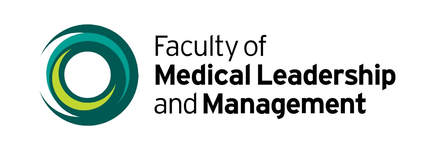 While I have completed my year as a Welsh Clinical Leadership Fellow (Blog post teaser … more on that in Novembers posts!) I still very much have an interest in leadership and how we can rise to the current challenges facing the National Health Service. Therefore I was excited to learn that the FMLM were hosting a conference just up the road in Cardiff. It was a heavily packed program and the day flew by in a flash. The FMLM Chief Executive Mr Peter Lees spoke to us about the aims and targets of FMLM and how they plan to achieve this. He was followed by Wales' very own Chief Medical Officer Dr Frank Atherton who opened with "If we don't seize the opportunity as medical leaders …. who will?" He emphasised the need for whole system change not jus on an individual level and that as an NHS in Wales we do not simply need more. We need to harness ideas and bring them together. We need to keep patient safety at the centre of everything we do and bring those who resist change with us through the changes which need to occur. Following the CMO is always a tough gig but it was managed superbly by Dr David Samuel (A fellow Leadership Fellow Alumni) and Dr Sian Lewis. They reminded us of the need for diversity in the workplace and within medical leadership teams. They asked us to do a tabletop exercise to emphasise this point. Each member of the team picked a O or a X card. We were not able to tell each other which symbol we were. Then everybody shut their eyes and the X's were instructed to open their eyes and read the instructions. The task was to plan a holiday but to do so without giving any value or time to the O members of your table. Then the O's reopened their eyes and the task of organising a holiday was given to the table. I was an X. It was incredibly difficult to ignore and not give value to peoples suggestions. It felt awkward and non productive to an effective team working environment. The O's felt undervalued, and eventually gave up suggesting things and went off into their own discussion, effectively planning a whole other holiday. The exercise was trivial but raised a good point - are you really inclusive in your leadership? Do you consciously or unconsciously bias against somebody and importantly how does that effect the team. Post a quick coffee stop we heard from Mr Nigel Edwards (Chief executive, Nuffield Trust) about integrated care and Dame Clare Marx (Current Chair of FMLM, former President of the Royal College of Surgeons, soon to be Chair of the GMC and a dynamic powerful woman) She spoke about the importance of clinical leadership and the fact that we need to change. She suggested that we need to exchange hierarchy for connectivity and that clinical leadership can impact to increase quality, social performance and make financial gains. She believes that positivity has a big impact on your team and that we have a responsibility to coach clinical leaders and help people to develop themselves. Following this we had the unique opportunity to have a panel discussion on current leadership challenges and how we can embrace them and continue to move forward within Wales. We asked for their key Leadership message: Dr Frank Atherton - To use management experience from outside of Medicine and promote interdisciplinary working. Dame Clare Marx - The only thing you can control in life is yourself, the way you work and the way you behave. Understand what it is you have the ability to control. Mr Nigel Edwards - Connect what feels real, we are missing a narrative "tell a story" After lunch we were encouraged by Ms Katie Laugharne (Head of Welsh affairs at the GMC) and Dr Madhu Kannan (Current Welsh Clinical Leadership Fellow within the GMC) to think about Leadership expectations and impact. How the things you do day to day have an impact and how small things, like tea!, can really matter. We were encourage to think about how our leadership style was viewed by members of our teams and if that was the way we wanted it to be. After a quick coffee break we learnt from Mr Christian Servini about what the future generations act was enabling people to do in Wales and the impact this was having on Well-being. Then to end the day a quick fire 5 minute presentation round where we heard about improvement projects which were having an impact around Wales. My project (poster below) was one of those presented. If you are at all interested in Clinical Leadership I would encourage you to take a look at the FMLM website and consider going to the annual conference. Leaders in Healthcare details of this can be found here: https://www.fmlm.ac.uk/events/leaders-in-healthcare-2018
|
Editors
Dr Annabel Greenwood Categories
All
|

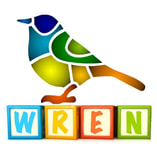
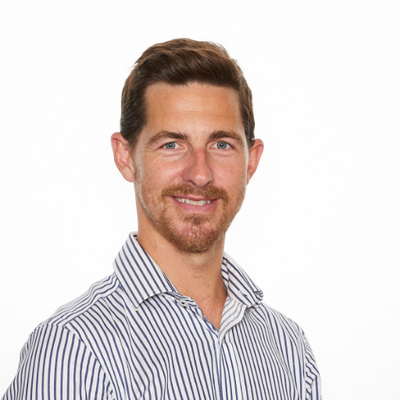
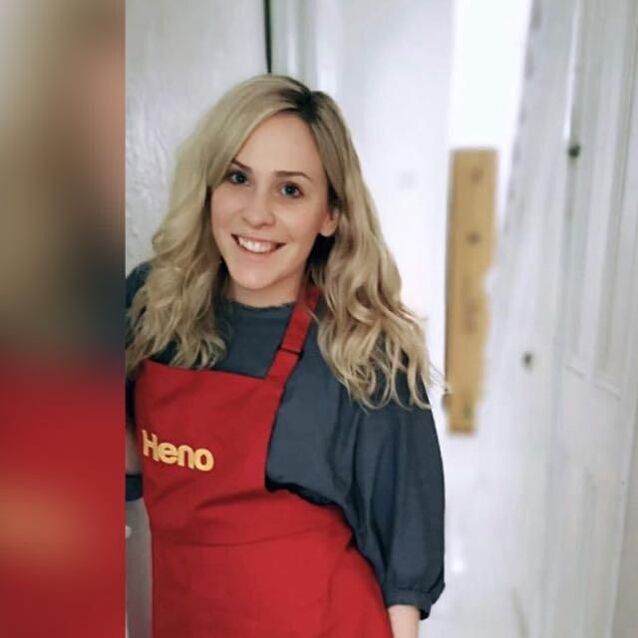
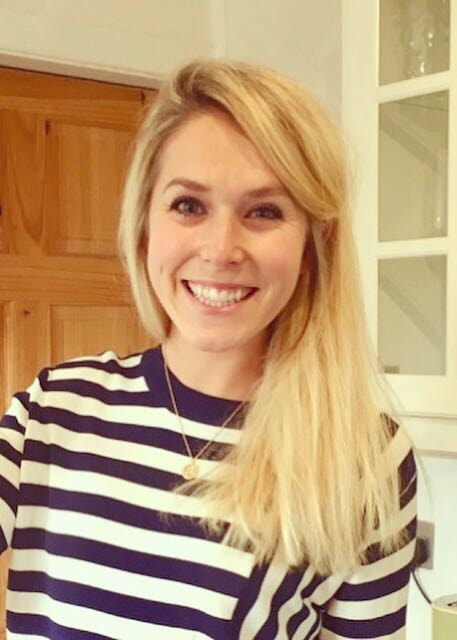
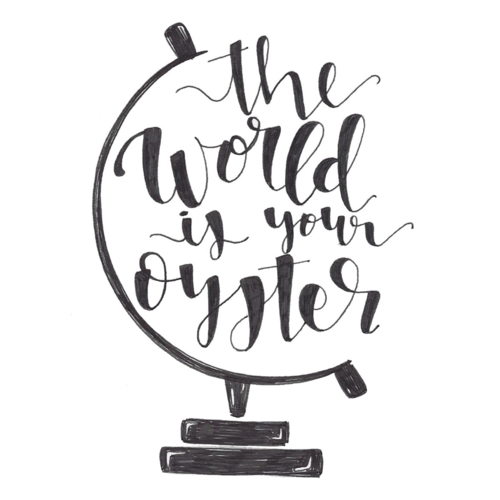
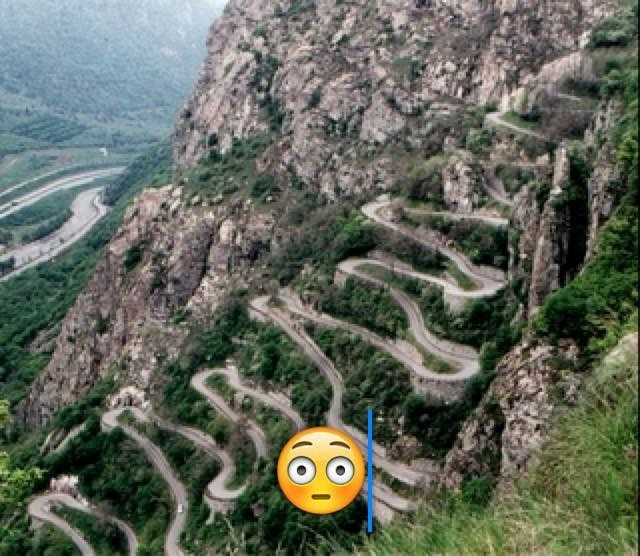
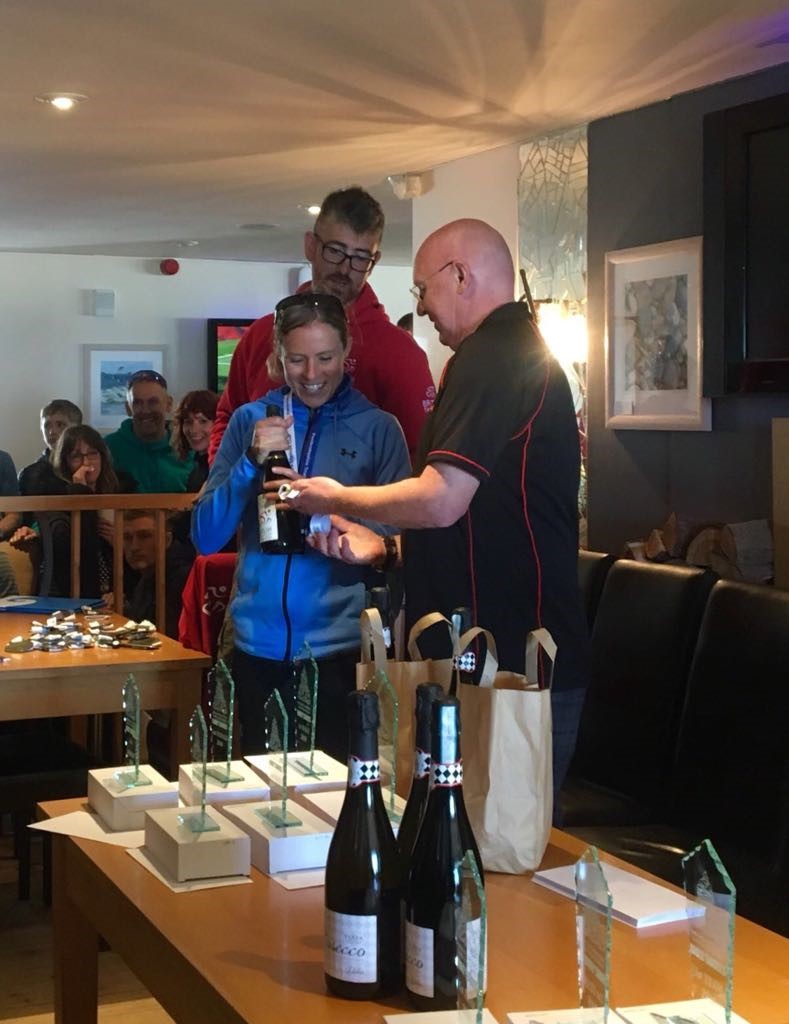
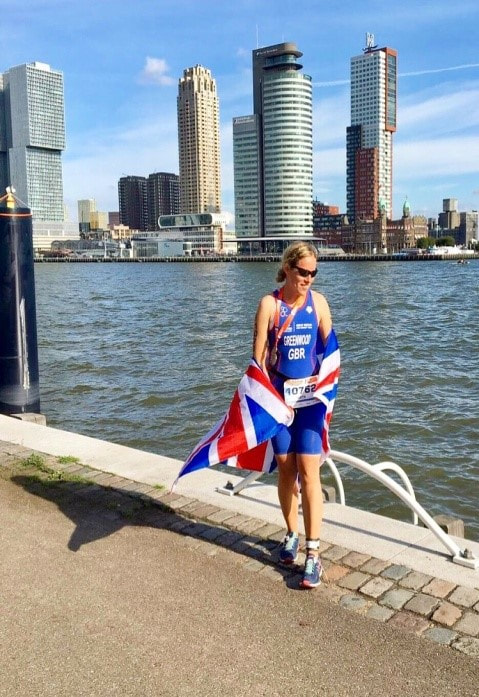
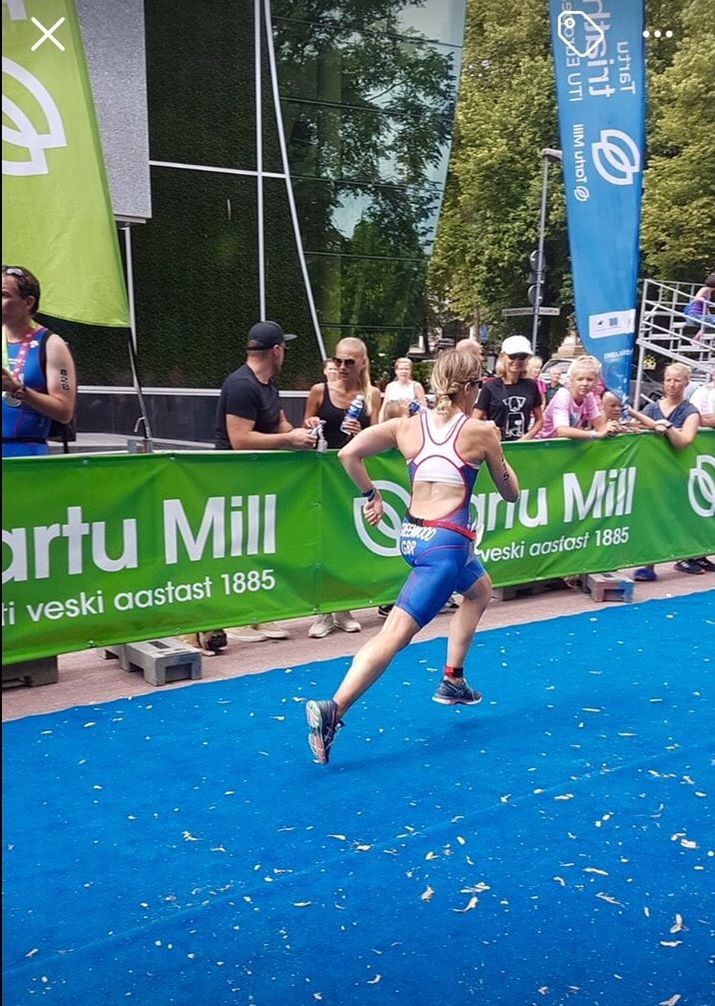

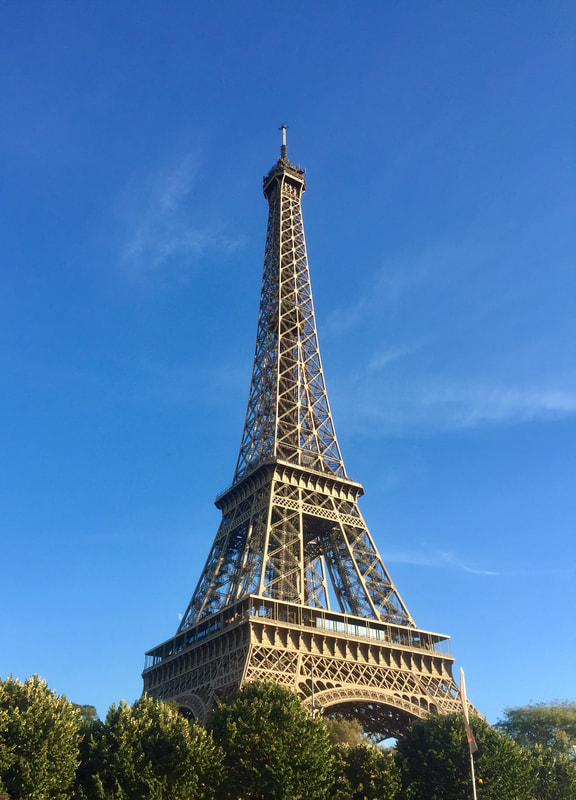
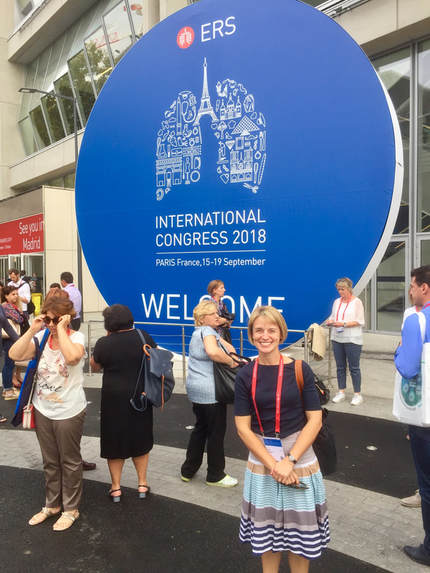
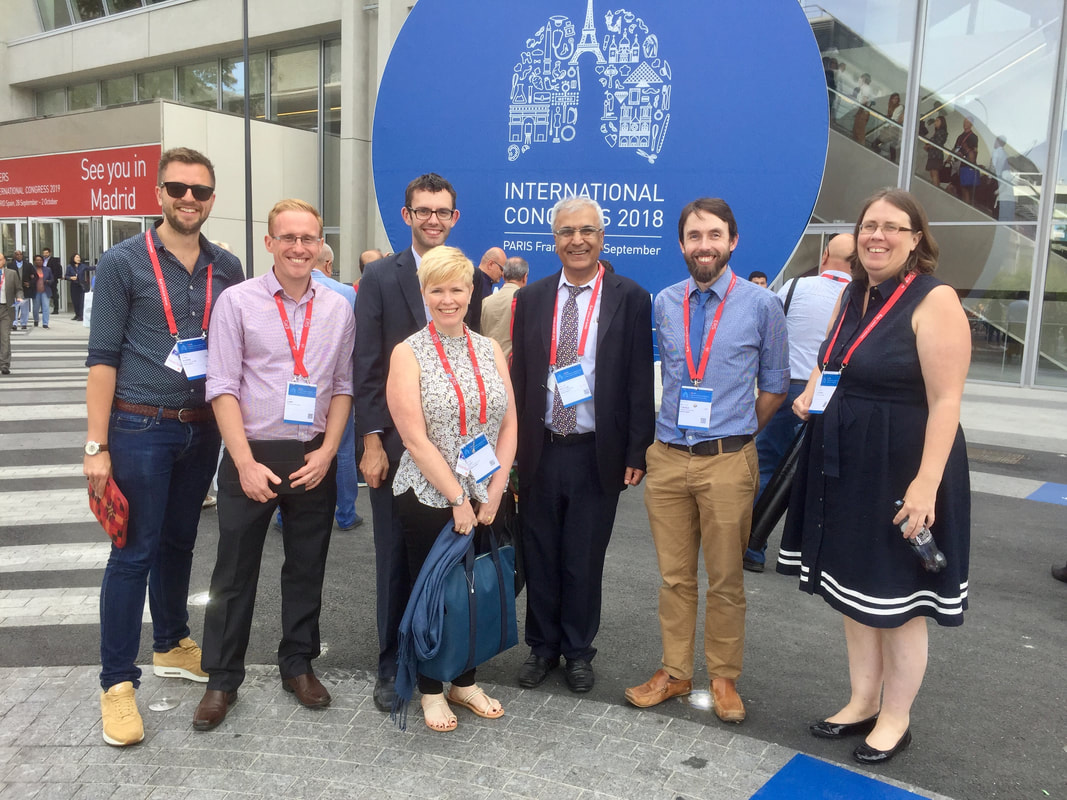
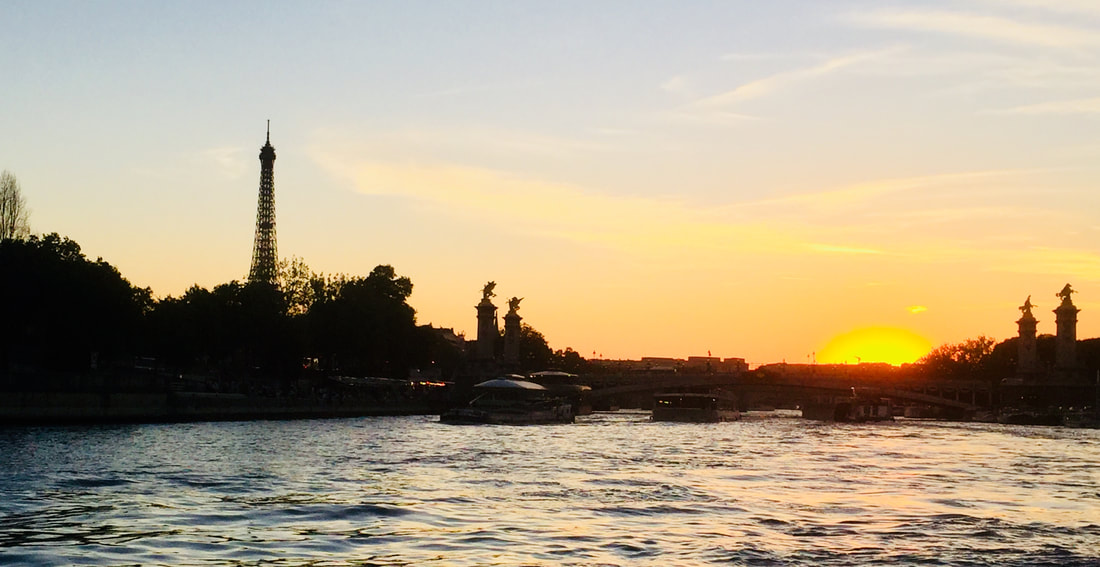
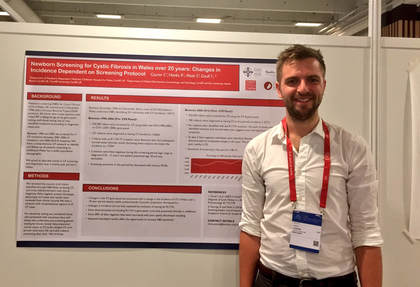
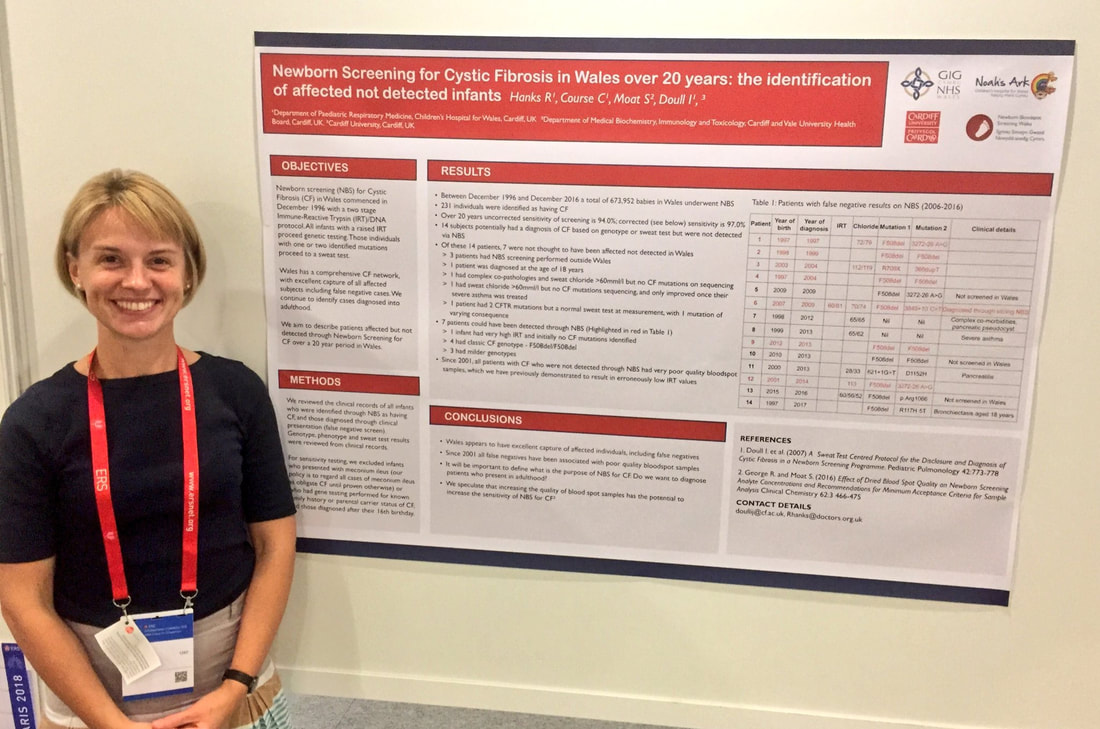
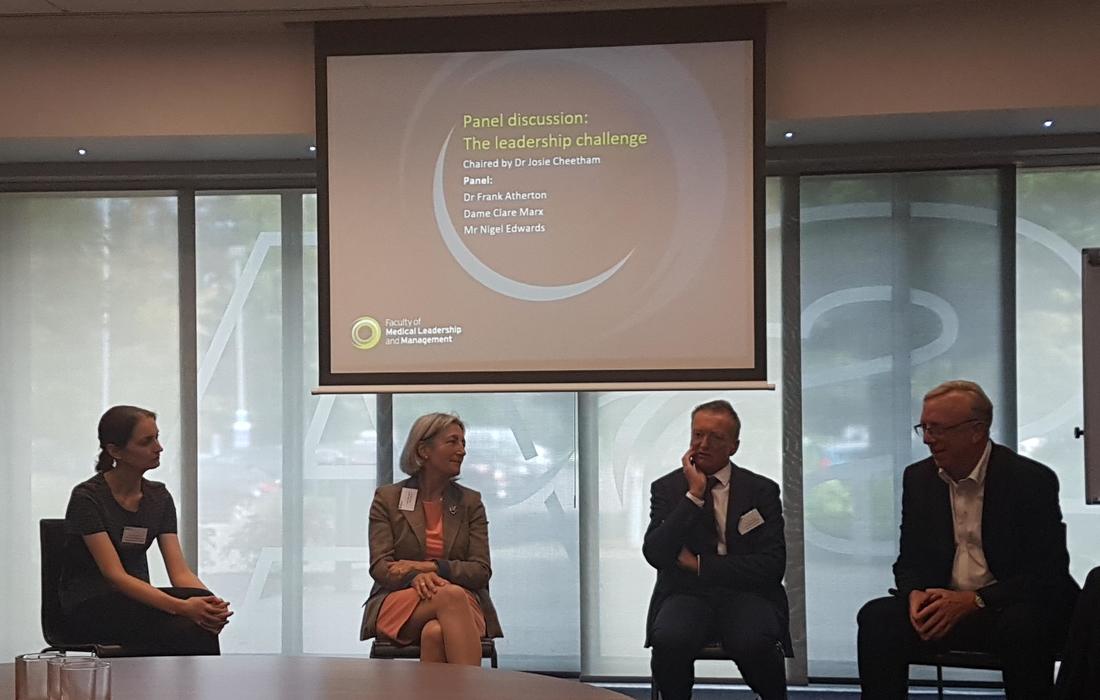
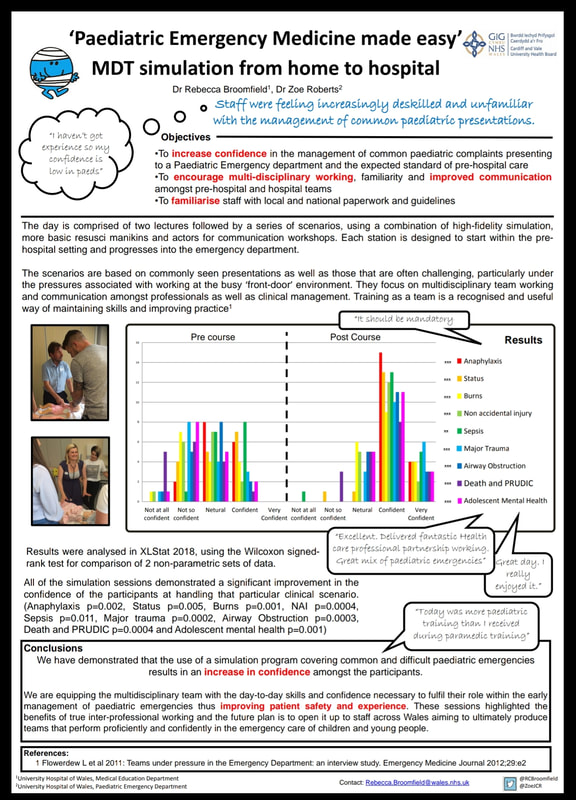
 RSS Feed
RSS Feed
